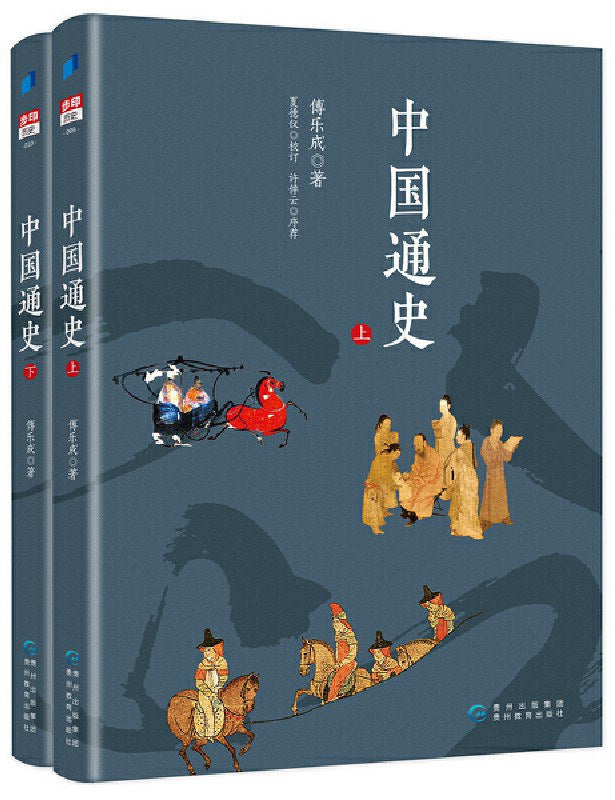WULOLIFE
《中国通史》(上下册)作者: 傅乐成 出版社: 贵州教育出版社
《中国通史》(上下册)作者: 傅乐成 出版社: 贵州教育出版社
Couldn't load pickup availability
Description
内容简介· · · · · ·
本书为我国历史事实与演进过程的一个简要叙述,意在使读者对中国历史有一个比较清楚而客观的概念。重心有四:政治社会的变迁;对外关系;各种制度的演进;学术思想的渊流.料有三:历朝旧史;1960年代前二三十年学人的研究成果;作者的读史心得.的整理及叙述,力求忠实谨慎,缺乏实证的见解和过分主观的议论,虽新颖动人,也不予采用。
本书所述,上探旧石器时代,下至1912年清帝退位,凡六十余万言。文字浅近数千年中国史事之此伏彼起,重要节点,配有适量插图,重点在于战争地图,以方便读者对史事有更为感性、系统的认识。
作者简介· · · · · ·
傅乐成(1922—1984) 字力更,号秀实。聊城市(今聊城市东昌府区)人。著名史学家。幼读私塾。1930年,随家迁至济南,入省立第一师范学校附属小学读书,1933年在该校毕业后,先后在北京辅1940 945 Years of the Year聘到国立河南大学任助教。1949年10月起,在国立台湾大学先后公室秘书、历史系助教、讲师、副教授、教授。1956位。傅乐成在北京辅仁中学读书期间,曾积极参加“一二•九”运动,被推举为学生代表和组织游行的主要领导人。后被捕入狱,经其伯父傅斯年保释出狱。在大学执教期间,严谨、平易近人。对秦汉、隋唐史的研究颇有建树。撰写的《中国通史》一书,在台湾史学界影响颇大,日本史学界评价他“为一不可忽视的史学家”。他一生著述甚丰,皆为史学论著。较有影响的有《秦汉史论文集》《隋唐五代史》等著作。他的史学论著有的被译成英、日、朝等国文字,是台湾、香港、日本、南朝鲜及东南亚国家高等学府学习中国史的必读之书。傅乐成终身未娶。步入老年后,体弱多病,孤身一人,思乡情深,常流露出对故乡的眷恋和早日实现祖国统一的期盼,生前嘱亲朋好友,待祖 去世后,台湾大学、中兴大学、台湾史学会曾为其联合举行隆重的追悼会,并设立“傅乐成教授奖学金”。台湾大学将其生前主持的“秦汉史研究室”易名为“傅乐成教授纪念研究室”。
